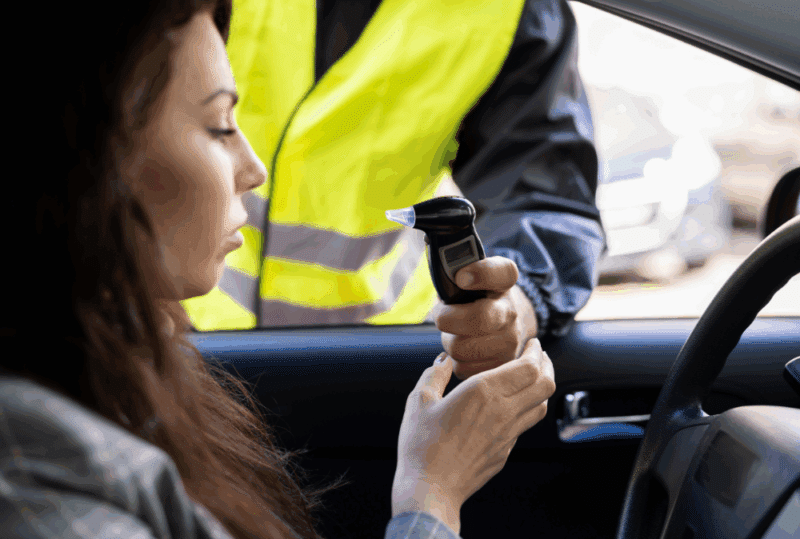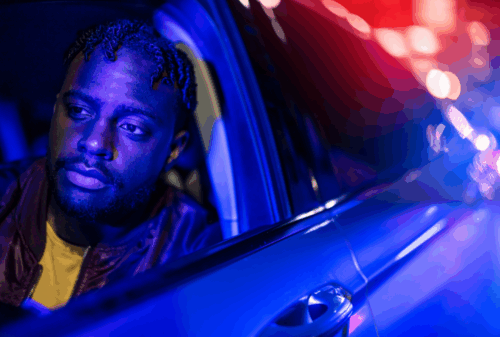Being arrested for DUI in Gainesville can be a frightening and overwhelming experience. Like most people, you may assume that an arrest automatically leads to a conviction—but that simply isn’t true. A DUI charge is just the start of a legal process, and with the right defense, it’s possible to fight the charges and protect your rights every step of the way.
At Turner O’Connor Kozlowski, PL, we understand the fear and uncertainty you’re feeling. Our Gainesville DUI defense attorneys are here to guide you through the legal system and ensure that you don’t face this challenge alone.
Hiring an experienced DUI defense lawyer is one of the most important steps you can take to safeguard your future. DUI laws are complex, and every case is unique. Without the right legal guidance, you may miss critical opportunities to challenge the evidence or the procedures used against you.
Our team has extensive experience defending clients in Gainesville and throughout Florida, and we are committed to thoroughly investigating your case to identify the best possible defenses.
In this article, we’ll outline some of the most common legal defenses that may apply to your DUI charge. From questioning the legality of the traffic stop to challenging breathalyzer results and addressing medical conditions, there are many ways to build a strong defense. We encourage you to read on and then reach out to us at (352) 290-4115 so we can discuss how these defenses might apply to your situation.
1. No Probable Cause for the Traffic Stop
The U.S. Constitution protects you from unreasonable searches and seizures. This means that law enforcement must have a valid reason—called “probable cause” or “reasonable suspicion”—to pull you over in the first place.
If law enforcement stops you without proper justification, any evidence they gather during that stop, such as breathalyzer results or field sobriety tests, may be thrown out by the court.
If we can show that the officer lacked probable cause or reasonable suspicion for the stop, we may be able to suppress key evidence. In many cases, this leads to the dismissal or significant reduction of DUI charges. Challenging the legality of the stop is often one of the first steps we take in building your defense.
2. Faulty or Improperly Administered Field Sobriety Tests
Police officers often rely on three standardized field sobriety tests (FSTs) during DUI stops:
- Horizontal Gaze Nystagmus (HGN): Involuntary eye movement during side-to-side tracking
- Walk-and-Turn: A divided attention test involving balance and coordination
- One-Leg Stand: A balance and timing test requiring you to stand on one foot
While these tests are intended to help officers assess impairment, they are far from perfect. Various factors—such as poor lighting, uneven pavement, bad weather, or nervousness—can lead to inaccurate results.
In addition, medical issues like vertigo, inner ear disorders, back or knee problems, and neurological conditions can make it difficult to perform these tests even when completely sober.
Just as important, officers must administer these tests according to strict guidelines. If the officer gave unclear instructions, failed to explain the test properly, or didn’t account for your physical limitations, the results may be unreliable.
At Turner O’Connor Kozlowski, PL, we carefully review bodycam footage, officer reports, and your medical history to determine whether the field sobriety tests were administered properly—and whether the results can be legally challenged or excluded.
3. Inaccurate Breathalyzer or Blood Test Results
Breathalyzers and blood tests are only as accurate as the people and machines behind them. If the breathalyzer was not properly calibrated or maintained, or if the officer administering the test was not properly trained, the results can be unreliable. Inaccurate results can lead to false positives and wrongful arrests.
For blood tests, the prosecution must prove that your sample was properly collected, labeled, stored, and analyzed. Any break in the “chain of custody” can cast doubt on the results and may be grounds for having the evidence excluded.
4. Rising Blood Alcohol Content (BAC) Defense
One of the lesser-known facts about DUI cases is that your blood alcohol concentration (BAC) doesn’t peak immediately after drinking—it continues to rise over time as your body absorbs the alcohol. This means that your BAC could have been below the legal limit while you were driving, but then spiked after you were stopped and tested.
This time gap between when you were pulled over and when your BAC was measured can be crucial. If there was a significant delay—whether due to field sobriety tests, waiting for a breathalyzer, or transport to the station—your BAC result may not accurately reflect your level of impairment at the time you were actually behind the wheel.
In such cases, we can argue that your BAC was legally acceptable at the time of driving, which can serve as a strong and scientifically supported defense. Our legal team works with toxicology experts when necessary to challenge the timing and validity of BAC evidence and to present a clear, compelling argument on your behalf.
5. Medical Conditions and Prescription Medications
Not all signs of impairment are caused by alcohol or illegal drugs. Certain medical conditions—such as diabetes, acid reflux (GERD), or neurological disorders—can produce symptoms that closely mimic intoxication. Slurred speech, unsteady balance, confusion, or even the smell of alcohol on your breath can all be explained by legitimate health issues.
In fact, conditions like GERD can cause mouth alcohol that skews breathalyzer results, leading to a false reading even if you haven’t consumed any alcohol. It’s also important to understand that a DUI charge isn’t limited to alcohol or illicit substances—you can be arrested for driving under the influence of legally prescribed medications.
However, if you were taking your medication as directed and were unaware it could impair your ability to drive, this may be a strong legal defense. In some cases, a lack of proper warning from a doctor or pharmacist may also play a role in your defense strategy.
Another possible defense is involuntary intoxication, such as if you were unknowingly drugged. If proven, this can be a complete defense that may lead to your DUI charge being dismissed entirely.
Our team will work closely with you to identify any medical conditions or medication-related factors that could explain your behavior or test results. These details matter—and they can make the difference between a conviction and a cleared name.
6. You Weren’t Actually Driving
Sometimes, people are arrested for DUI when they weren’t even driving—for example, if they were found sleeping in a parked car. Florida law distinguishes between “driving” and “actual physical control” of a vehicle. If you were not operating the vehicle or did not have the immediate ability to do so, you may have a strong defense.
If you were in the back seat or otherwise not in control of the vehicle, the prosecution may not be able to prove that you were “driving under the influence.” We carefully examine the facts to determine if this defense applies to your case.
7. Officer Misconduct or Report Errors
Law enforcement officers are required to follow strict procedures when making a DUI arrest. Any failure to follow protocol, inconsistencies in the police report, or gaps in documentation can seriously weaken the prosecution’s case.
Common red flags include:
- Contradictions between the officer’s report and video evidence
- Missing or incomplete dashcam or bodycam footage
- Failure to document key details of the arrest
- Unlawful or aggressive conduct by the arresting officer
Credibility is everything in a criminal case. If the officer’s account is inconsistent, lacks proper documentation, or raises questions about how the stop or arrest was handled, we can use these flaws to challenge the reliability of the state’s evidence. In some cases, officer misconduct can even lead to evidence being suppressed—or the charges dismissed entirely.
At Turner O’Connor Kozlowski, PL, we conduct a meticulous review of all available records, footage, and officer statements. Our goal is to expose any errors, oversights, or misconduct that could turn the tide in your favor.
Protect Your Rights—Act Now to Defend Your Future With Skilled DUI Defense
A DUI charge can feel like the end of the road—but it’s not. You have rights, and you have options. At Turner O’Connor Kozlowski, PL, we’re committed to protecting your future and challenging the charges against you with the full strength of the law.
There are many potential defenses that could apply to your case—but timing is critical. The earlier we begin investigating, the more opportunities we have to uncover weaknesses in the prosecution’s case and build a strong, strategic defense.
Don’t wait. Call us today at (352) 290-4115 for a confidential consultation. Let’s discuss your situation, protect your rights, and take the first step toward the best possible outcome.



